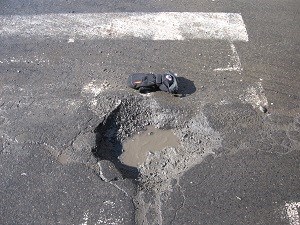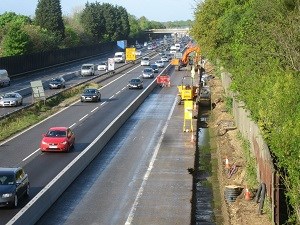What is road tax

Road tax, otherwise known as road fund license, vehicle excise duty (VED), vehicle tax, car tax and the former tax disc is annual government taxation payable by anyone with a roadworthy vehicle. It is enforced by the DVLA. The amount which you pay depends on the vehicle and much co2 it emits. It is not called road tax officially and has not been the official term for decades but now it's colloquial which most people are familiar with.
However, this blog isn't about what road tax but what road tax actually pays for (and doesn't pay for) so we'll keep the description brief.
Road tax has been around for over a century now, coming into force in 1888 when early cars weren't even around but it had a major overhaul in 1920 when automobiles began to become mainstream.
Where does the road tax money end up?

Many people may want to believe that road tax money ends up with either the local council or the Department for Transport but that is not the case. When road tax is paid it ends up with the Exchequer in the same place as other taxes such as council tax, corporation tax and so on. The Exchequer is not a single person but a department which is ultimately headed by the Chancellor of the Exchequer which at the time of writing is Rishi Sunak.
As a side note, the Department for Transport gets allocated a budget from the Government every year and that's how they essentially get "paid".
What does road tax pay for?
Using the name "road tax" is misleading and possibly the biggest contributor to why so many people are confused about what "road tax" pays for. Road tax, or VED, is a tax on motor vehicles and not on roads. VED is not connected to roads in any way which is a good starting point to explain what road tax pays for.
Because road fund license ends up with the Exchequer it could be argued that road tax pays for everything and nothing all at once.
The easiest way to look at what road tax pays for is to look at what needs to be paid for on a national and local level. First, we'll take a look at national transport expenditures:

So, who pays for the roads in the UK?
Simply put, the Government allocated a budget on a national and local level and it is the responsibility of the Department for Transport and local councils for road upkeep. That pothole that keeps getting bigger? That's a council issue that needs to be resolved via their allocated budgets. Road tax does not pay for potholes or any other issue with the roads.
No individuals pay to use the roads via road tax but they technically do via tolls.

National Infrastructure
To keep Britain moving the infrastructure needs constant improvements and maintenance. The Department for Transport is allocated a budget by the Government and with this they decide where to spend it. Some examples of infrastructure improvements are new smart motorways, creation of new roads and so on. There are more cars being added to the roads than there are leaving so you can imagine just how important this budget is to us all. However, they do not have infinite money so proper planning is essential to ensure the budget is spent as best as is possible.
National projects concern elements of British transport that do not belong to local councils such as motorways and busy junctions.
Local Projects
Local projects on a council level also need some budget - local projects can be resurfacing work (not fixing potholes), new road layouts, new roads altogether and even new car parks. This is decided by your local council using budgets given to them ultimately from the Exchequer (although there are a couple of steps between the two).
Does it pay for the roads?
No. As we've previously mentioned, "road tax" is not actually a "road" tax but a vehicle tax. You are paying tax for the vehicle and the vehicle only - it's a personal tax and not a communal tax. Therefore, it does not pay for the roads at all.
Do road taxpayers have any priority?
Cyclists often get a lot of flack on the roads from vehicle users with the rationale being that they pay for the roads and cyclists don't. Well, as we have mentioned before about road tax being a car tax there is simply no truth in tax payers having a priority over anyone else using the roads legally.
Who is responsible for paying vehicle tax?
The owner of the vehicle is responsible for paying the road fund license. Anyone can actually make the payment but it is the responsibility of the owner to ensure it is paid. If you lease a vehicle you don't need to pay the road fund license as you do not own the car.
Road Tax FAQs
Buses are liable to pay some vehicle tax but they get heavy discounts because they provide a public service and are more economical and efficient per passenger than cars. I know how that sounds but consider that you can divide the emission by up to 30 passengers whereas a car has only 1-4 passengers at a given time.
Nope. Only motor vehicles pay the road fund license.
No. This is one of the biggest sources of aggression for cyclists, especially in London. There is no such thing as "road" tax and they do not emit any co2s, therefore, there is nothing for cyclists to pay.
